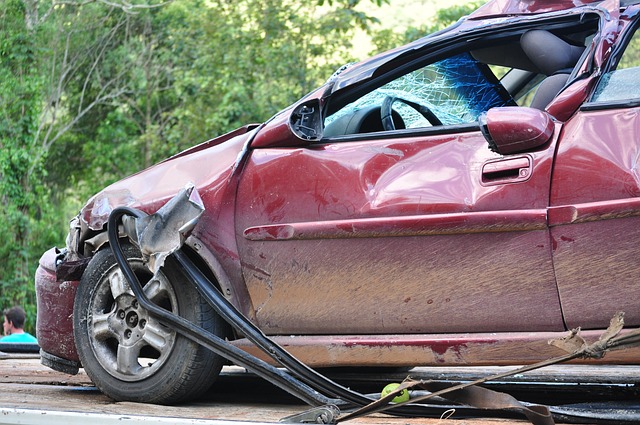PIP insurance offers extensive coverage that ensures financial stability for drivers and passengers after an accident. Here are its main advantages:
1. Quick Access to Financial Support
One of the most significant benefits of PIP insurance is its ability to provide immediate financial assistance. Since PIP operates on a no-fault basis, policyholders can access benefits quickly without waiting for fault determinations or lengthy legal processes.
- Example: Medical bills for emergency care are covered promptly, ensuring that you receive necessary treatment without financial delays.
2. Comprehensive Medical Coverage
PIP insurance covers a wide range of medical expenses, including:
- Doctor visits
- Hospital stays
- Surgical procedures
- Rehabilitation and physical therapy
- Prescription medications
This ensures that all accident-related medical needs are met, even for those without health insurance. For more details on what PIP covers, read here.
3. Coverage for Lost Wages
If injuries sustained in an accident prevent you from working, PIP compensates for lost income. This feature is particularly valuable for individuals without disability insurance or emergency savings.
- Example: A policyholder earning $1,000 per week may receive up to 80% of their wages while recovering, depending on policy terms.
4. Protection for Passengers
PIP coverage extends to passengers in your vehicle, ensuring that their medical expenses and lost wages are also covered in the event of an accident.
5. Funeral and Essential Services Coverage
In addition to medical and wage benefits, PIP covers funeral expenses and services like childcare or housekeeping if injuries prevent you from performing these tasks.
6. Peace of Mind in No-Fault States
In states with no-fault laws, PIP is often mandatory. Knowing that you’re covered for accident-related expenses regardless of fault can provide significant peace of mind.
What Are the Limitations of Personal Injury Protection Insurance?
While PIP insurance offers many benefits, it’s important to be aware of its limitations.
1. Coverage Limits
PIP policies have specific coverage limits, which may not be sufficient for severe accidents involving extensive medical expenses or long-term rehabilitation.
- Example: In Florida, the minimum required PIP coverage is $10,000, which may not fully cover costs for a major accident.
2. No Coverage for Vehicle Damage
PIP only covers medical and personal expenses. Damage to your vehicle or other property is not included, requiring additional coverage like collision or comprehensive insurance.
3. Higher Premiums in Some States
In states where PIP is mandatory, premiums can be higher than in states without such requirements. This is especially true in areas with higher accident rates or extensive coverage mandates.
- Example: Drivers in Michigan, where unlimited medical benefits are required under PIP, face significantly higher premiums compared to other states. For more on PIP costs, read here.
4. Exclusions for Non-Accident Injuries
PIP does not cover injuries that occur outside of a car accident. If you sustain injuries while walking, biking, or at work, PIP benefits do not apply.
5. No Compensation for Pain and Suffering
Unlike liability insurance, PIP does not compensate for non-economic damages such as pain and suffering, emotional distress, or loss of companionship.
Who Benefits Most from PIP Insurance?
Certain groups of drivers may find PIP insurance particularly beneficial:
- Drivers Without Health Insurance:
PIP provides a safety net for medical expenses that might otherwise lead to significant out-of-pocket costs. - Rideshare Drivers:
PIP covers both the driver and passengers, making it ideal for rideshare or delivery drivers who frequently transport others. - Families with Dependents:
Coverage for essential services like childcare is invaluable for parents recovering from accident-related injuries. - Drivers in No-Fault States:
In states where PIP is mandatory, it ensures compliance with legal requirements and provides comprehensive coverage.
How to Maximize the Benefits of PIP Insurance
To make the most of your PIP policy:
- Understand Coverage Limits: Opt for higher limits if you anticipate needing more financial protection in case of an accident.
- Bundle Policies: Combining PIP with other types of auto coverage can often lead to discounts.
- Review State Requirements: Ensure your policy meets or exceeds the minimum coverage required in your state.
Real-Life Example: Balancing Benefits and Limitations
Lisa, a freelance graphic designer in Florida, was involved in a minor accident. Her PIP policy covered $8,000 in medical bills and $2,000 in lost wages, helping her recover without financial stress. However, Lisa’s car repairs were not covered under PIP, requiring an additional claim through her collision insurance. This highlights the importance of understanding what PIP does—and does not—cover.
Personal Injury Protection insurance offers a range of benefits, including comprehensive medical coverage, lost wage compensation, and quick access to funds. However, it also has limitations, such as coverage caps and exclusions for vehicle damage or non-accident injuries. By understanding both the advantages and drawbacks, you can determine whether PIP insurance is the right fit for your needs. Whether it’s required by law or chosen for additional protection, PIP provides valuable peace of mind for drivers and passengers alike.



